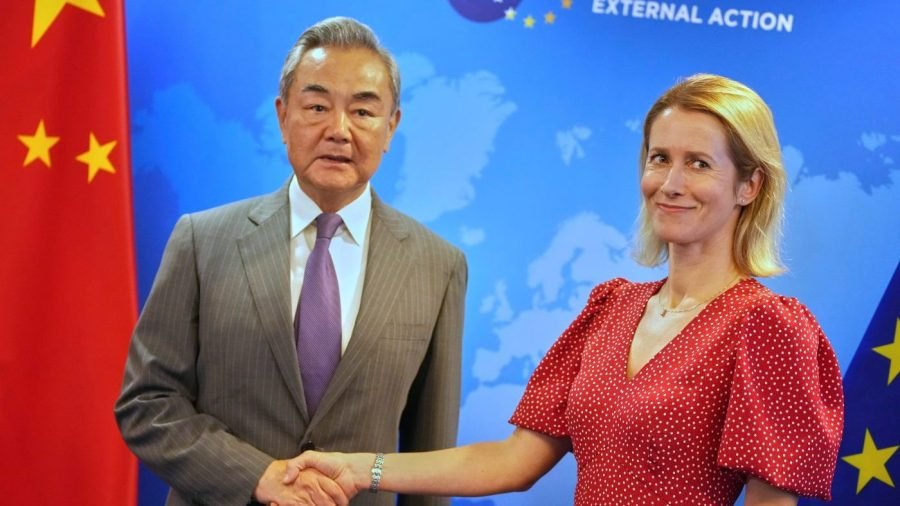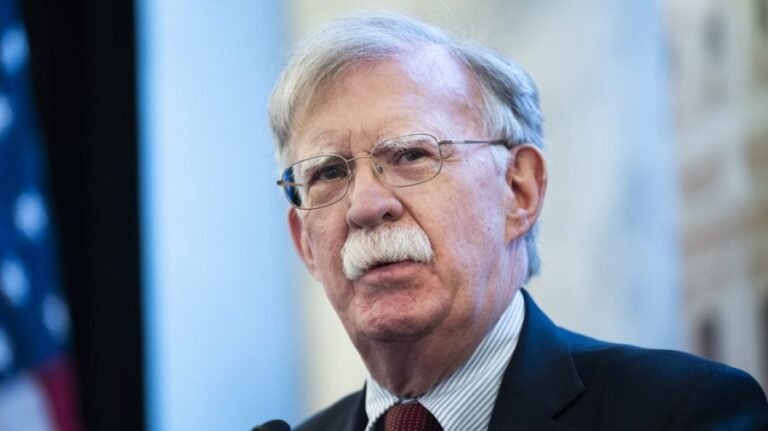
Chinese Foreign Minister Wang Yi was probably dissembling when he recently confided in Kaja Kallas, the European Union’s High Representative for foreign affairs and security policy, that China “can’t accept Russia losing its war against Ukraine as this could allow the United States to turn its full attention to China.”
Why might Wang have been less than fully truthful? For starters, he’s a diplomat, and all diplomats have a tendency to express less than fully truthful views. To confuse adversaries and keep them guessing is a lesson that diplomats in all countries have mastered.
In addition, Wang represents a totalitarian state with a huge propaganda apparatus which, like all such entities, is prone to prefer manipulation to truth telling.
But the misleading nature of Wang’s private comments is most evident in the fact that, contrary to his suggestion that the U.S. is China’s greatest worry at the moment, it is actually Russia.
Yes, China certainly wants the U.S. off its back, and any distraction is therefore a good distraction. But America isn’t next door, and it isn’t involved in a debilitating war. Despite the Trump administration’s loud barks, it has yet to resort to biting. Nor is it clear, as the ongoing tussle over tariffs shows, just what biting China would entail.
In contrast, Russia is a far more immediate security concern, and maybe even threat, for China.
Consider these three possible outcomes in terms of China’s security interests.
If Russia wins in Ukraine — however victory is defined — Putin will be flush with self-confidence and arrogance, his imperialist adventure having proven to be successful in making Russia great again. Such a Russia might be foolhardy enough to attack a NATO country or attempt to annex northern Kazakhstan, neither of which would benefit China.
Next would be a change in tone. A triumphant Russia could begin to flex its muscles and challenge its sworn “no limits” friendship with China. Perhaps the terms of the partnership could be amended to reflect Russia’s new status? Perhaps Beijing might consider paying more for energy from Russia? Perhaps China could stop publishing irredentist maps with Chinese names for Russian cities?
The eternal friendship might not evaporate overnight, but this would surely create a more complicated relationship that could test China’s patience.
If Russia loses in Ukraine — however loss is defined — a whole raft of highly destabilizing scenarios could emerge.
An utterly defeated Russia could descend into internal violence, thereby destabilizing Eurasia. Vladimir Putin could be ousted in a coup and his regime could collapse. Elite infighting would be inevitable, and civil war could raise its head. Non-ethnic Russians might take advantage of the chaos to declare independence, and Russia’s federation could meet its inglorious end. True, China could annex large chunks of the Russian Far East, but those gains would be overshadowed by the security threats that would emanate from its decaying northern neighbor.
A war that bloodies but does not beat Russia is China’s obvious favorite choice. A weak Russia implicated in an unwinnable war would be chastised but still exist as Beijing’s vassal and have no alternative to kowtowing to its Chinese overlord. That kind of Russia suits China perfectly.
And the war need not be protracted for this goal to be achieved. It could end tomorrow, because Russia is already a pale shadow of its former self. Its army has been mauled, its economy is on the verge of a major crisis and its people, though largely supportive of the war, are experiencing increasing economic pain.
Significantly, a weakened Russia would also suit America’s, Europe’s and Ukraine’s interests, even if such a Russia might not be their first choice.
All of which suggests that Wang may have been telling the West that what China wants is what the West should want.
The implications for American policy are evident. The U.S. should actively pursue what China wants: a weak Russia. That’s easy to achieve by helping Ukraine stop Putin, as the Trump administration may finally be doing.
Chances are that Wang will shed crocodile tears and pat poor Putin on the head — but he won’t object.
Alexander J. Motyl is a professor of political science at Rutgers University-Newark. A specialist on Ukraine, Russia and the USSR, and on nationalism, revolutions, empires and theory, he is the author of 10 books of nonfiction, as well as “Imperial Ends: The Decay, Collapse, and Revival of Empires” and “Why Empires Reemerge: Imperial Collapse and Imperial Revival in Comparative Perspective.”


